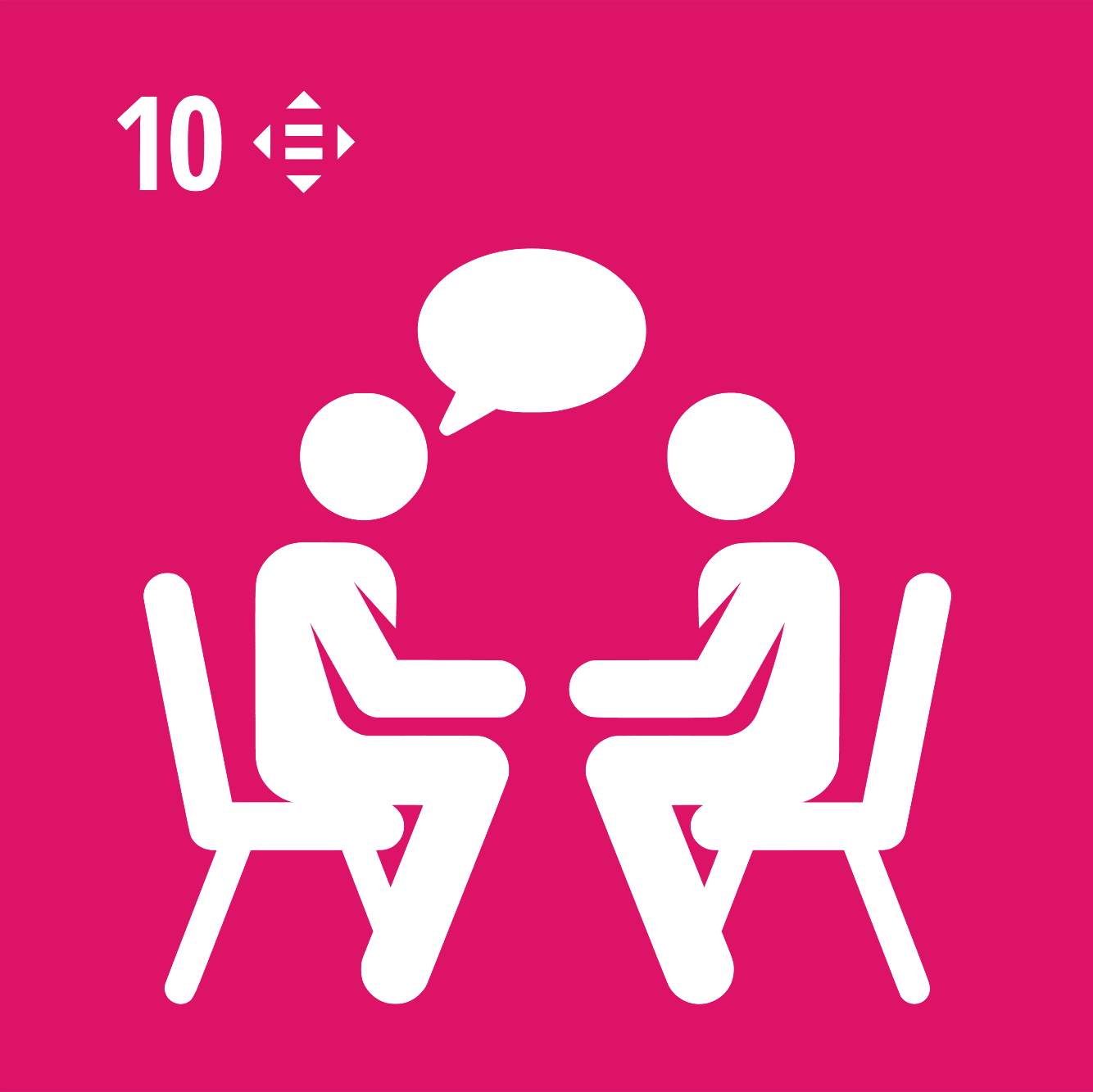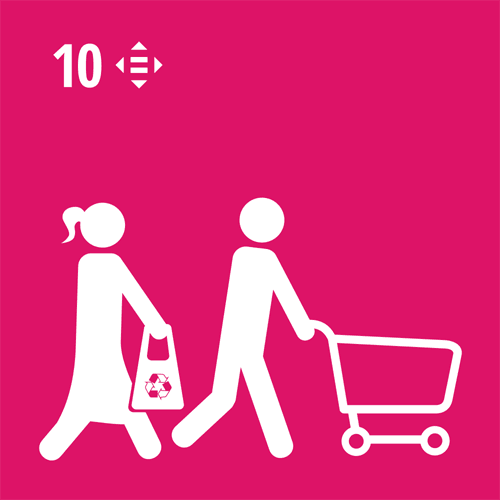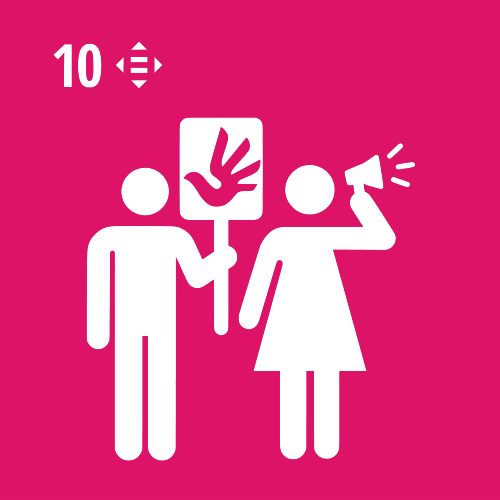Reduce inequality within and among countries.
This goal attempts to reduce the differences in income and opportunities between and within countries, reduce poverty in the most disadvantaged areas, promote the social, economic and political inclusion of all, promote policies at the international level to improve regulation and control of markets and financial institutions, and facilitation of mitigation and safe and responsible mobility of migrants. “No one should be left behind” has to become more than a simple slogan on social media. Leaving nobody behind means education, health and welfare, and equal peer opportunities for everyone.
Companies should offer decent working conditions for all their employees, especially for disadvantaged groups. This can be done by fair redistribution of salaries among their employees and by applying effective mechanisms to combat tax evasion.
In order to educate the teachers about inequality issues, educators need to enhance their knowledge about the dimension of inequality and daily life in different parts of the world. It’s also necessary to raise awareness about inequalities to make the students empathise with the discriminated people. The objective in education is to enable the student to evaluate inequalities, recognise their causes, and understand the steps everyone needs to do to reduce them.










